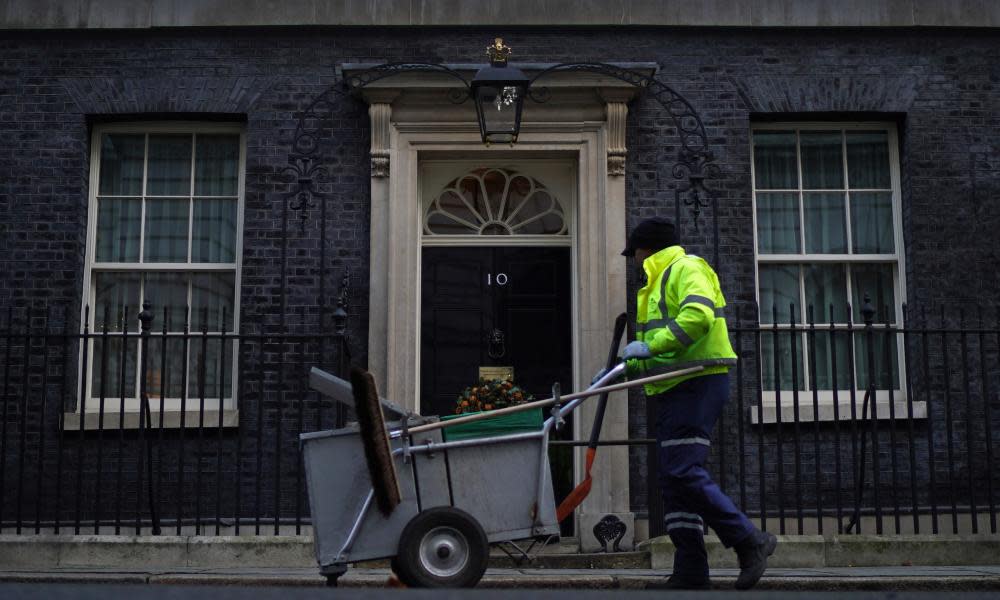The Guardian view on key workers: applause is not enough

When the new chancellor gave his first budget earlier this month, he provided a snapshot of the government’s economic priorities after its resounding victory in December’s general election. Rishi Sunak announced that there would be a doubling of investment in research and development, new grants for business innovation, and new money for life sciences research. This was a vision of startup Britain: outside the EU, the nation’s wellbeing would be secured through a new focus on the knowledge economy and advanced hi-tech manufacturing.
Only three weeks have passed since the chancellor’s debut budget, delivered before packed benches in the House of Commons. But it already seems to belong to another era. Mr Sunak’s ambition when it came to areas such as innovation and R&D was welcome. But viewed from the grim standpoint of the present, what most stands out is not what Mr Sunak said, but what he didn’t say. On the ongoing social care crisis, the subject of a pre-election pledge by the prime minister, he was entirely silent.
The omission is worth thinking about: not in order to condemn Mr Sunak with the benefit of hindsight, but because it reflected a mindset that paid too little attention to the vital but unglamorous types of work that knit our communities together. In his video address to the nation at the weekend, Boris Johnson made a point of asserting that, pace Margaret Thatcher: “there is such a thing as society”. Like the rest of us, the prime minister was no doubt moved by the national outpouring of affection for carers last Thursday evening. But it should not have taken such traumatic times for the low-status and often badly rewarded occupations that enable society to function to be properly valued.
In social care, a perilous game of catch-up is now being played. The sector faces a terrifying challenge in the days and weeks to come, as the Covid-19 epidemic peaks in Britain, but it is struggling with low staff numbers. This is partly due to illness and self-isolation, but also because of scandalously low rates of pay. This week it emerged that protective equipment for care workers promised by the end of last week does not include aprons, gloves and visors, while masks have been criticised as inadequate.
Other unfashionable sectors of the economy are finally receiving belated recognition. The environment secretary, George Eustice, gave a special shout-out to workers in the food industry – praising the “hidden heroes” in the food chain who have ensured that supermarket shelves remain stacked, despite the periodic predation of panic buyers. Employees in Tesco and Waitrose have worked until the early hours to replenish stock and shown forbearance when dealing with anxious and sometimes aggressive customers. Cleaners have allowed necessary office work to continue and played a crucial role in our hospitals, deep-cleaning rooms where Covid-19 patients have been treated. Across the country, thank-you notes and rainbow symbols have been left outside homes for the men and women performing the now-risky business of emptying their bins.
Care workers, supermarket employees and refuse collectors all play their part in what has been described as the “foundational economy”. Along with teachers, utility workers, bus drivers and librarians, they provide the services and social glue which any community needs. They are the key workers of this crisis. Yet their jobs are low-paid and often chronically insecure.
Some of that is down to the austerity-driven assault on local government finance during the past decade, which has prompted councils to shed jobs and reduce services. But the fashion for the private delivery of public goods, from refuse collection to street cleaning, long predated the 2008 crash. It was driven by an assumption that the pursuit of shareholder profit would maximise efficiency of delivery. Instead, in institutions such as care homes, it has led over-leveraged companies to cut corners and underpay staff in order to pay down debt and satisfy shareholders. It is heartwarming and right that the jobs which have carried little social status are now being seen in a different light. But as Britain learns the myriad lessons of a crisis that has exposed our assumptions to the harshest scrutiny, the need for a new deal for workers in the everyday economy should be high on the list.


